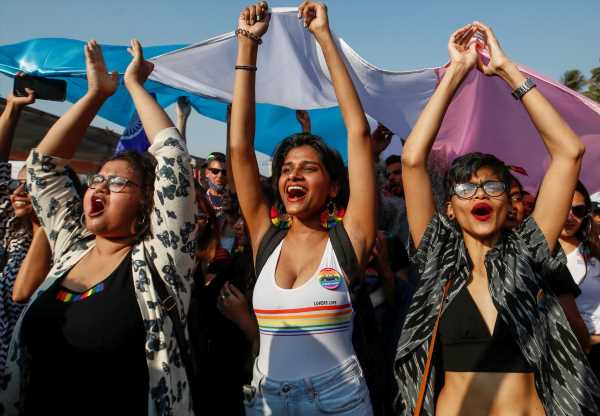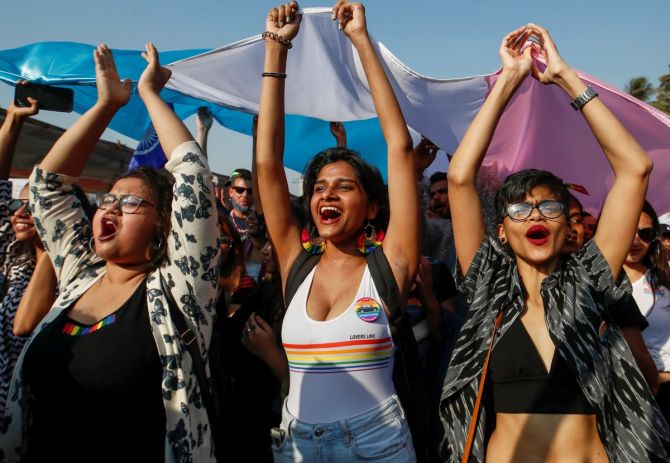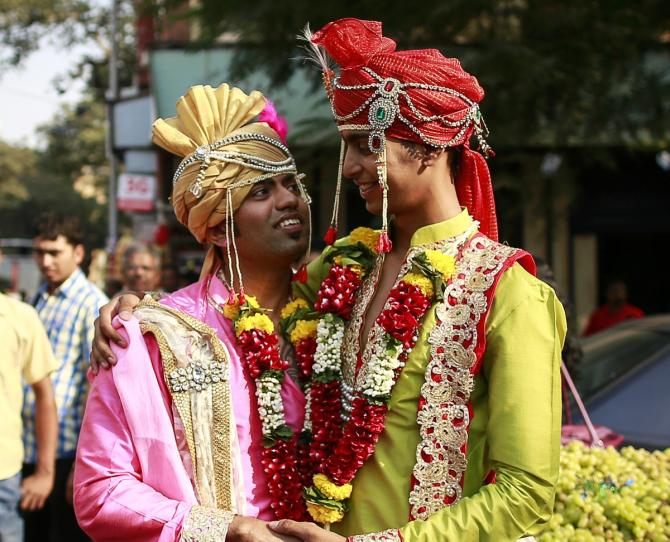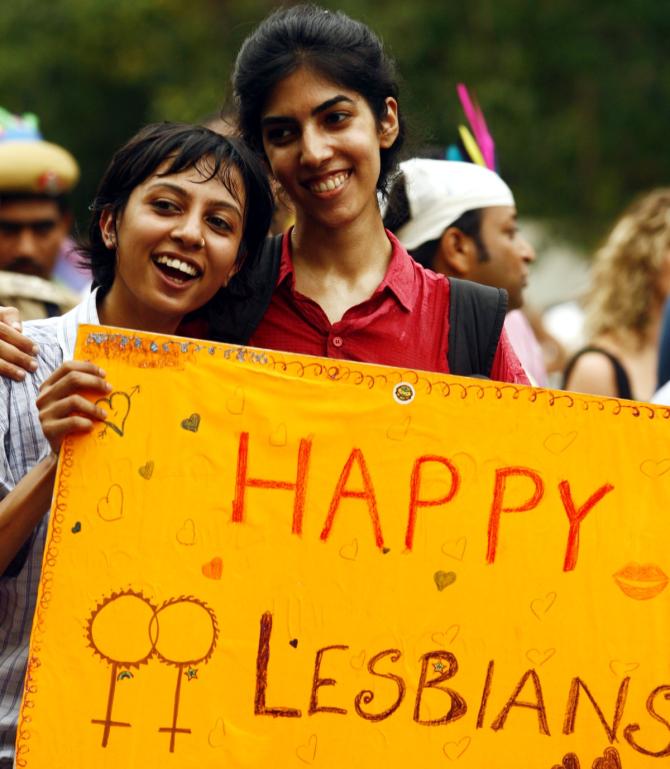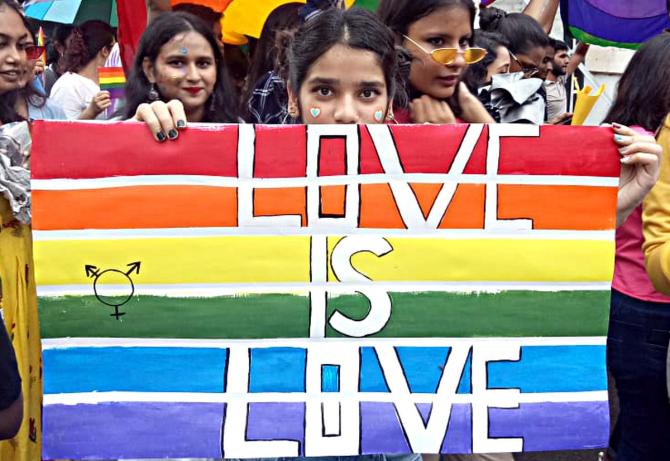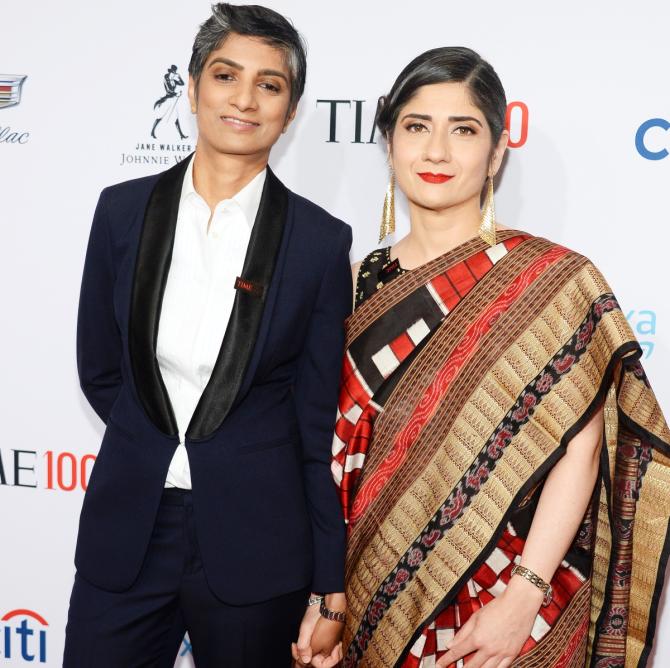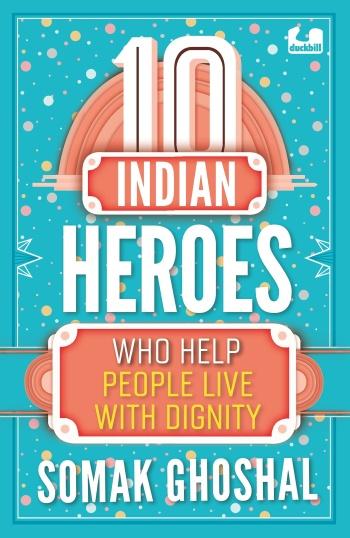To be a good human being, we must own the truth of who we are — and lawyers like Menaka Guruswamy have made it a little easier to do so.
This is but the beginning of a journey for LGBTQ+ Indians, and for India as a nation.
In time, hopefully, Guruswamy and her colleagues will be able to convince the government to allow LGBTQ+ Indians their right to marry people they want.
A fascinating glimpse from Somak Ghoshal’s 10 Indian Heroes Who Help People Live With Dignity.
On the morning of 6 September 2018, millions of criminals in India were told by the Supreme Court that their punishment was over, that at last, after years of waiting, they were equal to any of their fellow citizens. Sounds fantastical, right?
The Supreme Court, which is the highest court in the country, does have tremendous power, indeed, to pull off such magic. But actually, it needed years of efforts of brave and brilliant lawyers to persuade the judges of the court to do right by the people.
Menaka Guruswamy is one among a team of such lawyers, who changed the lives of millions of Indians on that fateful day.
It was a moment of big hopes and big fears, but as five judges of the Supreme Court read out four verdicts on the cases Guruswamy and her colleagues were fighting, there was jubilation inside and outside the courtroom.
People milled around the streets with rainbow flags carried posters with victory slogans emblazoned on them.
There was much singing and dancing, reciting of poetry and emotional speeches.
People hugged one another, wept tears of joy and relief, they could dare to dream of a brighter future at long last.
There was good reason for making such a lot of fuss.
India had finally got rid of a law that the British rulers had foisted on us more than 150 years ago as part of a penal code, which is a set of rules about the punishment to be given to anyone who commits a crime in this country.
The gist of this law stated that two people could not be allowed to be in love with each other, or in a romantic relationship unless they were of different genders, that is one was a man and the other woman.
Further, they should not behave in a way that was seen by society as ‘unnatural’ — even if they were doing so in the privacy of their homes.
This law came into effect in 1860 and had its full run for 158 years until it was struck down by the Supreme Court in 2018.
Human beings are too diverse and wondrous to be slotted into the binary of male and female — just as a rainbow in the sky is made up of many colours, so are our identities created out of many dreams and desires that are fluid, and not always possible to categorize.
If you do not see such diversity of characters around you, or see them rarely, it is only because society does not approve of difference — you can even say society is afraid of difference because it requires great courage to be able to live the truth of who you are.
It was on behalf of a handful of such brave people, who fought for their individual rights and on behalf of millions of others like them, that Guruswamy, and a team of lawyers like Anand Grover, Arundhati Katju and Saurabh Kirpal, appeared before India’s highest court in 2018.
Born in 1974, educated in India, Oxford and New York, Guruswamy was already a well-known lawyer by this time.
Her practice, like that of many other lawyers, drew deeply from the provisions already existing in the Constitution of India.
All citizens of India are promised equality and liberty in the eyes of the law by this document.
Making a pledge on paper is easy, but turning it into reality is a slow, uphill fight — one that requires years of patience and persistence to change the mindset of a society that is fixated on beliefs and value systems established through habit and tradition.
The LGBTQ+ community — the acronym is an umbrella term for Lesbian, Gay, Bisexual, Transgender, Queer and others who identify differently from society’s idea of male and female — was (and continues to be) an easy target for people who like to boss over the private lives and choices of others.
Although the Constitution is clear on protecting the rights of every citizen of India, the so-called ‘moral guardians’ of society like to think otherwise.
Once a person turns eighteen, they become an adult in the eyes of the law, and it is nobody’s business than to interfere with who they love or want to spend their lives with — so long as the other person involved is also an adult, willing to be in the relationship and no harm is caused to anyone by either of them by exercising their respective choices.
The idea may sound obvious, but the LGBTQ+ community has been suffering indignity and violence from society, especially from the police, for decades because of their desire to live life on their own terms.
The harassment and humiliation usually start early, at home or in schools, where a person is insulted for being too ‘girly’ or ‘tomboyish’. (Think back for a moment if you have ever said such a word to another person, have been called it yourself or seen another person suffering at the hands of others?)
Such name-calling is partly the result of the assumption that there is a set of rules that regulate the way we ought to live out the gender assigned to us at birth.
To a certain degree, it arises out of ignorance and fear of engaging with people who are different.
Verbal abuse often turns into physical attack or, worse, small acts of daily aggression — such as sniggering behind the person’s back, mimicking their body language, or excluding them from networks of family and friendship.
It is like knowing all your classmates are having a party, but no one wants you around–just because you happen to like oranges when the rest of them like apples.
Before Guruswamy and her colleagues stepped into the courtroom to right these wrongs, thousands of others — activists, members of the LGBTQ+ community, friends and families who support them and ordinary citizens–have been fighting a pitched battle to get rid of Section 377.
Initially, only a handful came out on the streets to claim their rights.
India’s first pride march was held in 1999, in Kolkata, with only fifteen participants.
In the next ten years, the numbers began to swell, as other cities and towns began to host such gatherings.
Then, a turning point came in 2009. In a landmark ruling that year, the Delhi High Court decided that the law, as it applied to LGBTQ+ people, violated the promise of equal treatment made to every Indian by the Constitution.
Suddenly, the community saw a ray of hope, many found the courage to come of the ‘closet’, where they had locked up their deepest desires. But the triumph was brief.
Soon, an astrologer called Suresh Kumar Kaushal, backed by a group of religious leaders, appealed to the Supreme Court to reconsider the relevance of Section 377.
In 2013, two judges of the court hearing the case decided that the law could stay. They argued that LGBTQ+ Indians were very few in number and that their lives were barely affected by Section 377.
If the law were to be removed, the judges added, it would have to be done by a vote by lawmakers in Parliament, not by the courts.
It was an unrealistic hope because few members of Parliament were willing to put their necks out to fight for the rights of the LGBTQ+ community.
It was then that Guruswamy, her life partner and fellow lawyer Arundhati Katju, along with a few others, set out on their fight.
They decided to file a petition with the Supreme Court, urging it to rethink its earlier ruling on Section 377 but went about it in a cleverly roundabout fashion.
Instead of only sticking to the arguments they had in their legal arsenal, they decided to make an emotional appeal to the judges.
To counter the belief stated by the earlier verdict — that LGBTQ+ people were only a small minority of the population and did not matter in the big picture — the lawyers got influential LGBTQ+ Indians from all walks of life to file appeals before the judges.
From restaurant owner and chef Ritu Dalmia to hotelier Keshav Suri to dancer Navtej Singh Johar, a range of personalities came forward, with their stories of love and loss, suffering and joy.
Guruswamy represented a group of petitioners from the Indian Institute of Technology-Delhi and argued their case passionately.
The stakes were too high for all those involved, including for her and Katju, who was not only present in their professional capacity, but also as a couple, as proud members of the LGBTQ+ community.
The court’s decision on that September morning in 2018 was a momentous one, not only for India but also for other countries that were once ruled by the British — Pakistan, Bangladesh, Myanmar, Malaysia, and so on — where laws like Section 377 still play havoc with the lives of LGBTQ+ people.
Justice Indu Malhotra, one of the five judges who read out the verdict, went so far as to say that society owes the LGBTQ+ community an apology for mistreating them for decades.
While the legal change in India has not yet led to similar developments in some of our neighbouring nations, the good fight waged by Guruswamy and her allies has strengthened the will of other lawyers to keep crusading for justice.
In India, too, the absence of Section 377 is only the first in a series of changes needed to give the LGBTQ+ community life of dignity.
As Guruswamy said in an interview, quoting the Nobel Prize-winning economist Amartya Sen, that it is all very well to ensure freedom for everyone, but people must also have the capability to exercise the freedom given to them.
Our duty as a nation does not end with merely acknowledging that all citizens as equal in the eyes of law — rather, it begins there.
The principle of equality should be applied to practical realities to have any meaning, especially for LGBTQ+ people.
Today, LGBTQ+ Indians are, by law, as equal as any citizen of the country. Yet, they do not have the right to marry the person of their choice or adopt a child.
Those who identify as transgender have been legally clubbed as people of the ‘third gender’, though many of them do not want to identify as such.
Rather, those who have transitioned from one gender to another want to be acknowledged as persons of their desired genders.
Even though they now have the right to vote or contest polls, they do not have the right to marry and have a family.
Society still refers to them as hijras and wrongly assumes that all transgender people dance and beg on the streets for a living — when, in real life, transgender people are all around us, working in offices, teaching in schools, driving buses, and so on.
In recent years, openly transgender people have begun to find work in government service and with multinational companies.
Members of the LGBTQ+ community were always part of the workforce but were forced to hide their identities.
With the changing times, some employers are making an effort to understand the needs of LGBTQ+ employees — they are accepting that it is not possible to leave a vital part of your identity at home and wear a mask when you are at work.
Such a life would be as stressful as having to pretend that you like soccer when you actually like no sports at all!
To be a good human being, we must own the truth of who we are–and lawyers like Guruswamy have made it a little easier for us to do so.
This is but the beginning of a journey for LGBTQ+ Indians, and for India as a nation.
In time, hopefully, Guruswamy and her colleagues will be able to convince the government to allow LGBTQ+ Indians their right to marry people they want.
Until that happens, and even after it does, all of us can play a role in making this country a better place for LGBTQ+ people to live in.
Excerpted from 10 Indian Heroes Who Help People Live With Dignity by Somak Ghoshal, with the kind permission of the publishers, Penguin Random House India.
Feature Presentation: Rajesh Alva/Rediff.com
Source: Read Full Article
